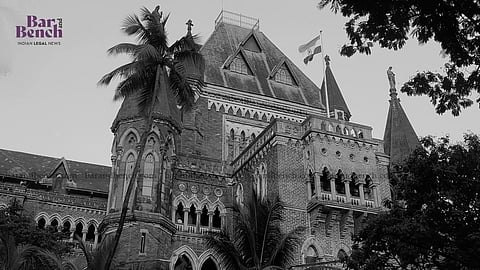
- Latest Legal News
- News
- Dealstreet
- Viewpoint
- Columns
- Interviews
- Law School
- Legal Jobs
- हिंदी
- ಕನ್ನಡ

The Bombay High Court has ordered the Brihanmumbai Municipal Corporation (BMC) to pay ₹50 lakhs as compensation each to the families of eight young adults who were killed in a fire that broke out at a Mumbai eatery in 2015. The Court has held that the civic body’s gross negligence was the proximate cause of the tragedy [Rekha P Thapar and Ors v State of Maharashtra].
A Division Bench of Justices BP Colabawalla and Firdosh P Pooniwalla on Monday allowed a writ petition filed by the parents and dependents of the victims and quashed an earlier Lokayukta ruling that had dismissed compensation claims made by them.
The Court observed,
“Had Respondent No.2 (Municipal Corporation) promptly discharged its statutory duties by acting upon the fire safety violations and canceled Kinara’s (the eatery's) license under Section 479 of the MMC Act, seized the LPG cylinders under Section 394 of the MMC Act and prohibited the use of loft area/ mezzanine floor for serving patrons, the fire would definitely not have occurred.”
The case stems from a tragic fire that broke out on October 16, 2015, at Hotel City Kinara in Kurla, where eight young adults, mostly students aged 18–20, were killed while dining on an illegally constructed mezzanine floor.
A mezzanine floor is an intermediate floor constructed between the main floors of a building. It may pose heightened fire risks, as any fires breaking out in such an area could spread rapidly across both the floors below and above the mezzanine level. The inherent design of mezzanine floors could also restrict the number of exit routes, which also adds to possible risks if a fire breaks out.
In this case, investigations had revealed that the eatery was operating without a mandatory fire NOC, was storing commercial LPG cylinders in the loft in violation of fire safety norms, and had received repeated warnings and inspection reports from the municipal corporation that went unheeded.
Between 2012 and 2015, multiple inspections by the Medical Officer of Health of the BMC recorded serious violations, including the use of unlicensed spaces for cooking, lack of fire permissions, and improper LPG storage. Complaints to the police and the Assistant Commissioner also warned of cylinder explosion risks.
Yet, the civic body failed to act under the Mumbai Municipal Corporation Act (MMC Act) to revoke the eatery's license or enforce safety compliance. Even a report just 44 days before the fire confirmed the use of the mezzanine floor for dining, but no action followed.
Before the High Court, the victims' families argued that BMC had a higher duty of care in enforcing fire safety norms. The civic body’s failure to cancel Kinara’s license or seize the LPG cylinders was not mere oversight, but a breach of statutory obligations that directly led to the deaths.
They invoked Supreme Court precedents on public authority liability for negligence and sought exemplary damages for the violation of rights to life under Article 21 of the Constitution.
The BMC claimed that the sole blame lay with the restaurant operators. It added that compensation claims should be decided through civil suits. It also contended that limited manpower constrained its enforcement capacity.
Rejecting these defenses, the Court held,
“This, in our view, was one of the most egregious breaches committed not only by the owner and operator of Kinara but also by Respondent No.2 (BMC) by issuing an eating house license to Kinara without obtaining any fire NOC.”
The Court emphasized that the BMC’s negligence was not only gross but causally linked to the fatalities. Applying the "but for" test, the Court concluded:
“In our view, if Respondent No.2 (BMC) had taken necessary action against Kinara for the aforesaid breaches, the LPG cylinders would not have been stored in the loft area/ mezzanine floor and the fire would not have taken place, and in any event, there would have been no loss of life.”
Noting that compensation in writ jurisdiction is meant to vindicate fundamental rights, not merely to calculate pecuniary loss, the Court held that the appropriate amount was ₹50 lakh per victim, factoring in age, education, future potential, and inflation since 2015.
The BMC has been given 12 weeks to comply or face the payment of an additional 9 per cent interest. The Court clarified that BMC may recover the sum from other responsible parties in accordance with the law.
Senior Advocate Naushad Engineer instructed by Jayesh Mestry appeared for the petitioners.
Government Pleader Purnima H Kantharia with Additional Government Pleader Abhay L Patki appeared for the State.
Senior Advocate AY Sakhare with advocates Yashodeep Deshmukh, Jyoti Mhatre, Anuja Tirmali instructed by advocate Komal Punjabi appeared for the Municipal Corporation of Greater Mumbai (BMC).
Advocate SR Page with advocates Eesha Jaifalkar, Archana Joglekar, appeared for HPCL (respondent).
Adocate Vighnesh Kamat, with advocates Satish Kamat appeared for Adani Electricity (respondent).
[Read Judgment]